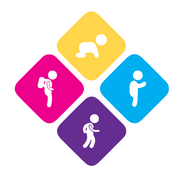3 Tips for Supporting a Child With an Eating Disorder

Adolescence can be a difficult period for even the most well-adjusted teens, and difficulties with body image and confidence can lead to teen depression and a range of related issues. One of the most common, and alarming for parents, is eating disorders, which may affect nearly 3% of teens nationwide. As a parent, here are a few ways to support your child experiencing this issue.
What Can Parents Do to Help Teens with Eating Disorders?
1. Talk to Them
Adolescents with eating disorders can become withdrawn, irritable, or moody, and may not be willing to talk about their difficulties or concerns. However, it’s vital that you, as a parent, understand their issues to help them.

Before raising the difficult subject of eating disorders with your child, carefully consider what you’ll say to them. It’s important to avoid mentioning their appearance or other people’s dieting or weight problems, as well as sentences beginning with “you,” as they may come across as criticism. Instead, do your best to remain calm and receptive, and try not to get upset or feel hurt if they don’t open up immediately. It may take them some time to feel comfortable enough to discuss their concerns.
2. Recognize Symptoms of Eating Disorders
Teens can develop a range of eating disorders, each with its own set of risks and symptoms. To get them the help they need, it’s important to be able to recognize these symptoms, such as vomiting after eating, fasting, skipping meals, or sneaking food.
Anorexia often results in severe thinness. Those with this condition may obsess about gaining weight, count calories, exercise excessively, or take steps to hide their weight loss, such as wearing oversized clothes. All of these conditions may share symptoms with teen depression, such as mood swings, difficulty communicating, and extended periods of silence.
3. Plan Mealtimes
Be prepared to support your child when they feel ready to start eating again. Keep them out of the kitchen while you prepare their meals, and provide distractions such as music or videos to take their mind off the act of eating. Pre-plan meals to ensure they get essential nutrients and enough calories. It may also help to avoid talking about food and not watch them eat. Instead, be present and reassure them that you’re there to help.
If you’re worried that your teen may be experiencing an eating disorder, contact Children & Adolescent Clinic in Hastings, NE. These doctors can treat a wide range of conditions, including common eating disorders and teen depression. They can be contacted 24/7 for emergency help and support. Call (402) 463-6828 to schedule an appointment, and visit their website to learn more about them.
About the Business
Have a question? Ask the experts!
Send your question

